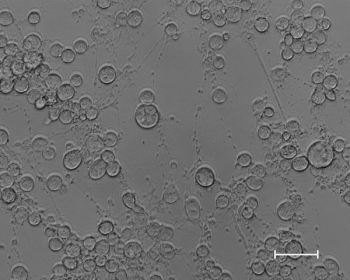
New offshore veterinary college develops a one-of-a-kind partnership with Virginia Tech
Antigua, West Indies - In a first-of-its-kind agreement with a stateside veterinary college, a new offshore veterinary school offers students the chance to transfer directly into and graduated from an accredited U.S. program.
Antigua, West Indies — In a first- of-its-kind agreement with a stateside veterinary college, a new offshore veterinary school offers students the chance to transfer directly into and graduate from an accredited U.S. program.
American University of Antigua, home of a 5-year-old human medicine college, announced the opening of the new school in August, as well as its partnership with the Virginia-Maryland Regional College of Veterinary Medicine to provide clinical training to its students, adding to a short but growing list of off-shore feeder schools to U.S. veterinary colleges.
"The big advantage I saw was, if we are going to have transfer students, we should do it with someone where we could influence the curriculum right from the beginning," says Virginia Tech Dean Dr. Gerhardt G. Schurig.
Having paradise-bound students complete clinical training at stateside colleges is nothing new — as evidenced by students sent to various U.S. veterinary colleges for clinical training from beachfront institutions like Ross University on St. Kitts and Nevis, and St. Matthews on Grand Cayman. But this is the first arrangement where an exclusive partnership will allow students to transfer directly to Virginia Tech, from which they will earn their DVMs.
Dr. David Granstrom, director of the American Veterinary Medical Association's (AVMA) Education and Research Division, says he is unaware of the specifics of the arrangement, having only received a press release about the new school opening and no further information. The same goes for Dr. Laurie Jaeger, DVM, PhD, head of basic medical sciences at Purdue University's School of Veterinary Medicine and chair of the AVMA Council on Education — the body charged with overseeing AVMA accreditation of veterinary-education institutions. Neither could speculate about how the new school, or its partnership with Virginia Tech, would operate or, maybe more importantly, how the partnership between Virginia Tech and American University could affect Virginia Tech's accreditation status.
"There's just too much unknown right now," Jaeger says. "All offshore schools are not the same. Certainly, we watch things. The council certainly is being aware and watching things and trying to be sensitive to the stakeholders. Until it becomes an accreditation issue, we just don't deal with it."
Yet Annette Nigreli, director of admissions for American University says Dr. Peter Bell, the school's vice president of academic affairs and executive dean of the Antigua campus, already has responded to a questionnaire sent to them by AVMA. She would not describe its contents, referring questions to Bell, who could not be reached for an interview. Nigreli also could not say whether American University would seek accreditation from AVMA.
Granstrom and Jaeger both said they were unaware of a questionnaire, but Granstrom says American University would not need to seek accreditation, since students technically would be graduates of Virginia Tech.
The key is that Virginia Tech would have to make sure students transferring in from American University were qualified, could handle the work and that their presence would not adversely affect the education of other students at the veterinary college, he says.
"Virginia Tech would have to address how they will meet all the standards with the influx of students," Jaeger adds, adding she would probably learn more about the new program at an upcoming Council on Education meeting.
Schurig says he anticipates about five students transferring from American University to Virginia Tech by 2012, once they have completed their basic training and passed the National Board of Medical Examiners' qualifying exam. By then, he says, Virginia Tech will have enhanced its facilities and added more clinical training space.
The curriculum at American University is being modeled directly after Virginia Tech's, Schurig explains. Transfer students will complete an additional semester once they come to Virginia Tech, meaning they will graduate with more training than resident students at the college, says Schurig. This is to ensure there are no "holes" in their education, he adds. In return, students will graduate with their veterinary degree from Virginia Tech, not American University.
"[This partnership] has many purposes," Schurig says. "We all know we have a [veterinarian] shortage that will be worse in the future. By admitting a few more students, we will be able to start graduating a larger class, in theory, within a couple of years.
"This will benefit all students because what's happening is we always have some students, starting from the third year on, who get out of the program for various reasons. So you start in the third year having a class with less people in it and you can't fill those spaces unless you have a transfer program," Schurig explains.
The partnership could serve as a model for the future, he adds, saying he believes the influx of third- and fourth-year veterinary students will make up for lost tuition caused by students leaving the program, and help keep tuition levels down by spreading costs over a larger pool of students. And space should not be an issue, since the transfer students likely will take the place of students who have left the program instead of adding to the total class size, he says.
American University will admit its first class of about 30 students in January, and the veterinary college will be led by Dr. Olusegun Dipeolu, DSc, PhD, DVM. Dipeolu is the director and founder of the Center for Tropical Diseases and International Travel Medicine at American University and previously served as the vice chancellor/principal and chief executive officer of the University of the North in South Africa. He also was the recipient of a Fulbright Award and is a fellow of the African Academy of Sciences.
Newsletter
From exam room tips to practice management insights, get trusted veterinary news delivered straight to your inbox—subscribe to dvm360.





